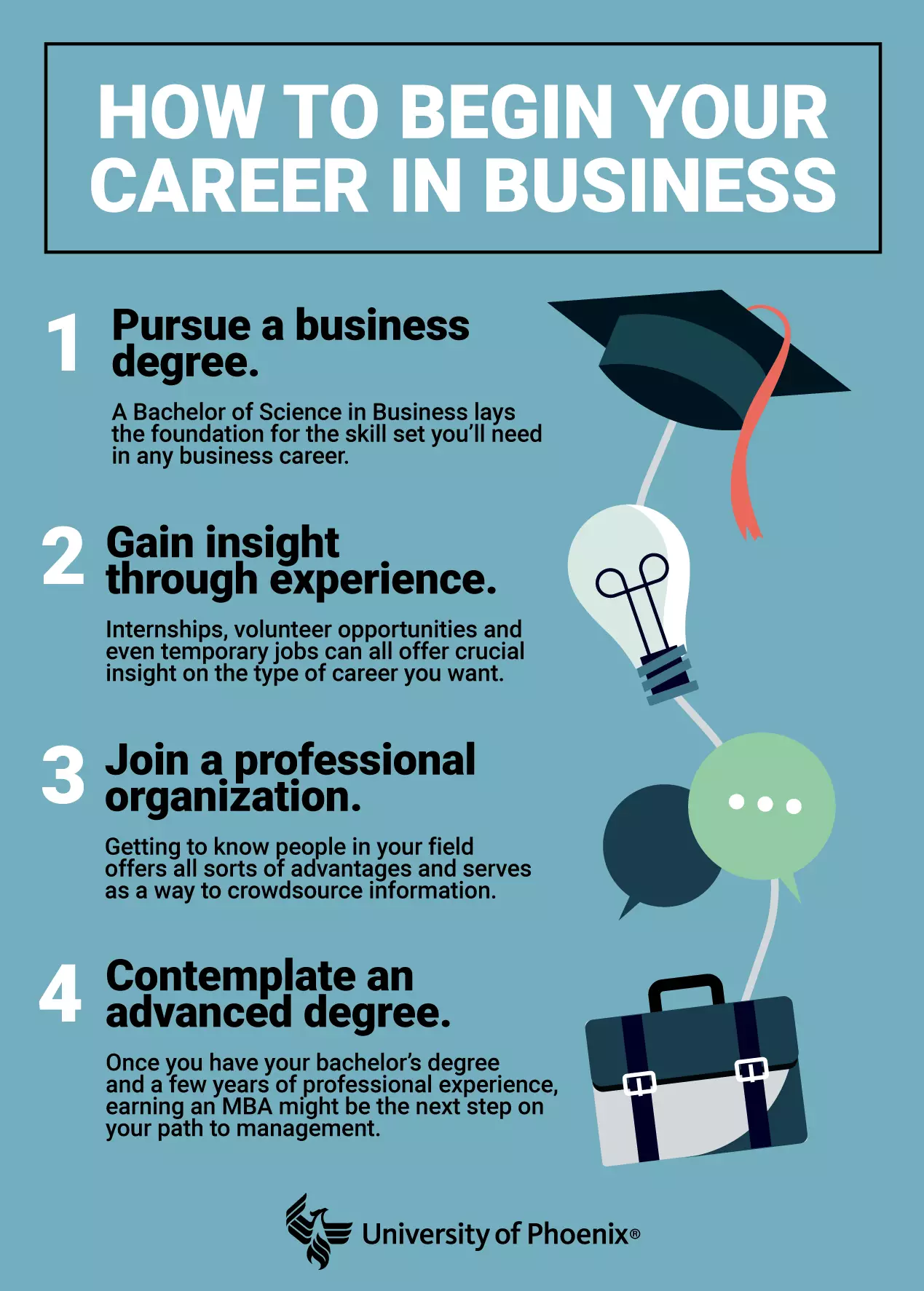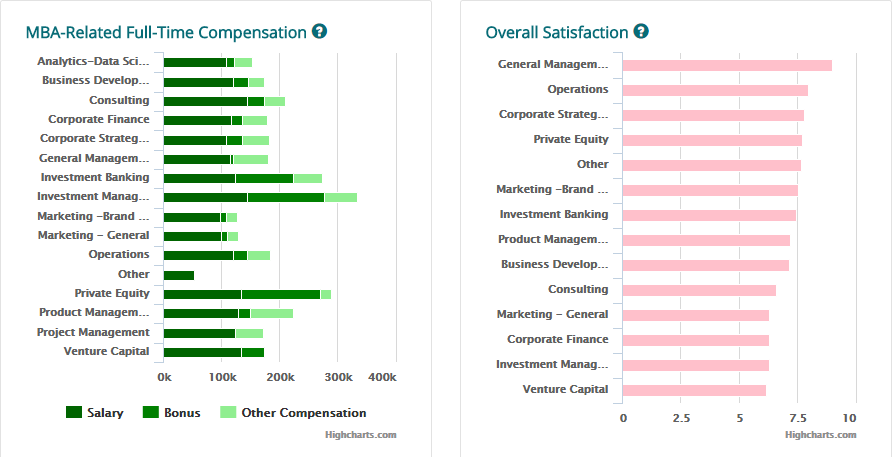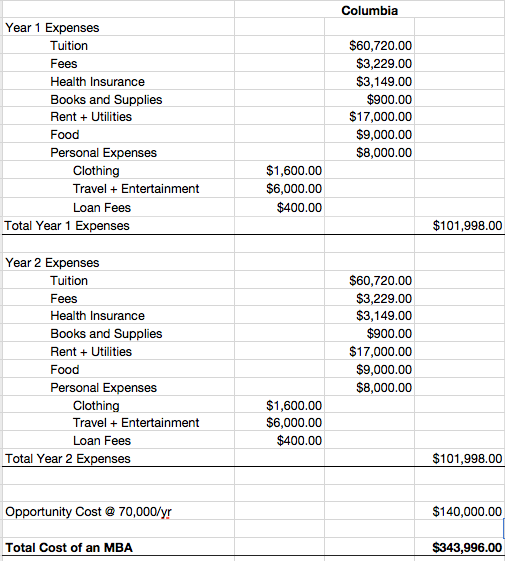The Master of Business Administration (MBA) degree is a highly sought-after credential that can open doors to a wide range of professional opportunities. With its rigorous curriculum and focus on developing core business skills, an MBA provides graduates with a competitive edge in today’s job market.
Unlocking a World of Possibilities: How an MBA Can Transform Your Career
Career Advancement and Salary Increase
An MBA can significantly boost your career prospects and earning potential. It equips you with the necessary skills and knowledge to take on leadership roles, manage complex projects, and navigate the ever-changing business landscape.
| Benefits | Details |
|---|---|
| Increased Salary Potential | MBA graduates often command higher salaries compared to their peers without the degree. |
| Career Advancement Opportunities | An MBA opens doors to leadership positions, executive roles, and other high-level opportunities. |
| Enhanced Marketability | The MBA credential signifies a commitment to professional development and makes you more competitive in the job market. |
Entrepreneurship and Business Ownership
For those with entrepreneurial aspirations, an MBA can be a valuable asset. It provides the foundation for developing business plans, raising capital, and managing a successful venture.
| Benefits | Details |
|---|---|
| Business Acumen | MBA programs cover essential business principles, financial management, and marketing strategies. |
| Networking Opportunities | MBA programs connect students with potential investors, mentors, and industry professionals. |
| Entrepreneurship Support | Many MBA programs offer specialized courses, workshops, and resources to support aspiring entrepreneurs. |
Industry Specialization and Knowledge Expansion
An MBA can help you specialize in a particular industry or functional area, allowing you to gain in-depth knowledge and expertise.
| Benefits | Details |
|---|---|
| Industry-Specific Knowledge | MBA programs often offer specializations in areas like finance, marketing, healthcare, or technology. |
| Professional Networking | Connect with industry experts, professionals, and alumni through specialized programs and events. |
| Career Transition | Gain the necessary skills and knowledge to transition into a different industry or functional area. |
What can I do with a degree in MBA?

Career Paths
An MBA can open doors to a wide array of career paths across diverse industries. With its focus on business fundamentals, strategic thinking, and leadership development, an MBA can equip you for various roles, such as:
- Management Consultant: Analyze business problems and develop solutions for clients, often focusing on areas like strategy, operations, or finance.
- Product Manager: Lead the development and launch of new products and services, collaborating with engineering, design, and marketing teams.
- Financial Analyst: Analyze financial data, make investment recommendations, and manage financial risks for companies or individuals.
- Marketing Manager: Develop and execute marketing strategies to promote products and services, manage brand image, and reach target audiences.
- Entrepreneurship: Start and manage your own business, leveraging the skills and knowledge gained during your MBA program.
- Executive Roles: Advance to senior management positions, leading teams and driving strategic initiatives for organizations.
Industry Specialization
While a general MBA provides a broad foundation in business, you can specialize in a specific industry to enhance your career prospects. Popular MBA concentrations include:
- Finance: Focuses on investment banking, asset management, and financial analysis.
- Marketing: Explores consumer behavior, branding, digital marketing, and marketing analytics.
- Healthcare: Addresses the unique challenges and opportunities in the healthcare industry, including hospital management and pharmaceutical marketing.
- Technology: Covers areas like software development, data analytics, and e-commerce.
- Sustainability: Emphasizes environmentally and socially responsible business practices.
Personal and Professional Development
Beyond specific career paths, an MBA can contribute significantly to your personal and professional growth. Key benefits include:
- Enhanced Critical Thinking and Problem-Solving Skills: Develop analytical and strategic thinking abilities to address complex business challenges.
- Leadership Development: Learn effective leadership styles, team management techniques, and communication skills.
- Network Building: Connect with a diverse group of classmates and professionals, creating valuable connections for your future career.
- Increased Confidence and Self-Awareness: Gain confidence in your abilities and develop a deeper understanding of your strengths and weaknesses.
- Career Advancement: An MBA can significantly boost your salary potential and open doors to higher-level positions within your organization or in new industries.
Is a MBA worth it?

Is an MBA Worth It?
Whether an MBA is worth it depends on your individual circumstances and goals. There are many factors to consider, such as your current job, your career aspirations, and your financial situation.
Benefits of an MBA
An MBA can provide you with a number of benefits, including:
- Increased earning potential: MBA graduates often earn significantly more than those with just a bachelor’s degree.
- Enhanced career opportunities: An MBA can open doors to new and exciting career paths.
- Improved leadership skills: MBA programs often focus on developing leadership skills, such as communication, teamwork, and problem-solving.
- Expanded network: An MBA program can provide you with the opportunity to build a valuable network of contacts.
Drawbacks of an MBA
There are also some drawbacks to consider before pursuing an MBA:
- High cost: MBA programs can be very expensive, both in terms of tuition and living expenses.
- Time commitment: An MBA program requires a significant time commitment, which may mean taking a break from your career.
- Competitive admissions: Getting into a top-tier MBA program can be highly competitive.
- Limited return on investment: Not all MBA programs provide a high return on investment, especially if you are not planning to switch careers.
Which job has the highest salary after an MBA?

The Highest Paying Jobs After an MBA
The job market for MBA graduates is vast and competitive, with numerous industries offering lucrative opportunities. However, some professions consistently stand out as the highest paying after obtaining an MBA. These roles often require a combination of specialized skills, leadership abilities, and strong business acumen. Here are some of the highest paying jobs for MBA graduates:
Investment Banking
Investment banking is a high-pressure, high-reward field that attracts ambitious individuals with strong analytical and financial modeling skills. Investment bankers advise companies on mergers and acquisitions, debt and equity financing, and other financial transactions. They work long hours and often face intense deadlines, but the potential for substantial compensation is a major draw.
- High starting salaries and bonuses: Investment bankers typically earn high salaries and generous bonuses, especially at top-tier firms.
- Career progression opportunities: The industry offers clear paths for career advancement, with the potential to move into senior management positions within a few years.
- Global reach and prestige: Investment banking is a global industry, offering opportunities to work in major financial centers worldwide.
Management Consulting
Management consultants are hired by companies to solve complex business problems and improve operational efficiency. They often work across various industries and functions, providing strategic insights and recommendations to clients. Management consulting firms place a high value on analytical skills, problem-solving abilities, and strong communication skills.
- Competitive salaries and benefits: Management consulting firms offer competitive salaries and comprehensive benefits packages, including healthcare, retirement plans, and paid time off.
- Fast-paced and dynamic environment: Consultants are exposed to a wide range of industries and projects, providing opportunities for continuous learning and career growth.
- High demand and career mobility: The demand for management consultants remains high, and the skills acquired in this field are transferable to various industries.
Private Equity
Private equity professionals manage investment funds that acquire and invest in private companies. They are responsible for sourcing deals, conducting due diligence, and overseeing portfolio companies. Private equity firms offer high compensation packages and the potential for significant returns on investments.
- Large salaries and performance-based bonuses: Private equity professionals often earn significant salaries and substantial bonuses based on the performance of their investments.
- Exposure to senior management and decision-making: Private equity professionals work closely with company management teams and have a direct impact on strategic decisions.
- Potential for entrepreneurship: The experience gained in private equity can provide a valuable foundation for starting one’s own business.
Can a MBA get you a good job?

Can an MBA help you land a good job?
An MBA can be a valuable asset in your job search, but it’s not a guaranteed ticket to a high-paying position. The value of an MBA depends on several factors, including your prior experience, the program’s reputation, and the job market conditions. Here’s a more detailed look at how an MBA can help you find a good job:
Networking Opportunities
One of the biggest benefits of an MBA is the opportunity to network with other professionals and potential employers. Business schools often host career fairs, alumni events, and other networking opportunities that can help you connect with people in your desired industry. An MBA can also help you build relationships with professors and industry experts who can provide valuable career advice and mentorship.
- Expanded professional network: Meeting other professionals in your field and building relationships with them can lead to job opportunities and valuable insights.
- Access to industry leaders: MBA programs often invite guest speakers and industry experts, providing a chance to learn from and connect with top professionals.
- Alumni network: Access to a strong alumni network can open doors to potential job opportunities and provide valuable career guidance.
Enhanced Skills and Knowledge
An MBA program can equip you with the skills and knowledge needed to succeed in a wide range of business roles. You’ll learn about topics such as finance, marketing, accounting, strategy, and leadership. This knowledge can make you a more attractive candidate to potential employers and prepare you for a variety of challenging roles.
- Improved business acumen: A deeper understanding of financial statements, marketing strategies, and other business concepts can make you a more valuable asset to any company.
- Stronger analytical and problem-solving skills: MBA programs often emphasize critical thinking and analytical skills, equipping graduates to tackle complex business challenges.
- Leadership and management skills: MBA programs often include courses on leadership and team management, preparing graduates to take on leadership roles.
Increased Earning Potential
An MBA can lead to a significant increase in your earning potential. According to the Graduate Management Admission Council (GMAC), MBA graduates earn an average of $100,000 per year. However, the salary increase you experience after earning an MBA will depend on factors like your prior work experience, the reputation of the program, and your job industry.
- Higher starting salaries: MBA graduates are often offered higher starting salaries than those with only a bachelor’s degree.
- Greater earning potential over time: The skills and knowledge gained from an MBA can lead to greater career advancement opportunities and higher salaries over time.
- Career transition opportunities: An MBA can help you transition to a new industry or career path, potentially leading to a significant salary increase.
Frequently Asked Questions
What jobs can I get with an MBA?
An MBA can open doors to a wide range of career paths across various industries. Some of the most common career options for MBA graduates include:
Management Consulting: MBA graduates are highly sought after by management consulting firms, where they can apply their analytical and problem-solving skills to help organizations improve their efficiency and effectiveness.
Finance: The financial services industry offers many opportunities for MBA graduates, including roles in investment banking, asset management, and corporate finance.
Marketing and Sales: An MBA can provide you with the skills and knowledge needed to succeed in marketing and sales roles, where you’ll be responsible for developing and implementing strategies to promote and sell products or services.
Entrepreneurship: An MBA can provide you with the foundational knowledge and skills you need to launch and grow your own business.
Technology: The tech industry is increasingly seeking MBA graduates with strong analytical and strategic skills to help lead product development, business strategy, and operations.
How much does an MBA cost?
The cost of an MBA can vary significantly depending on the program, school, and location. The cost of an MBA can be broken down into tuition, fees, living expenses, and other miscellaneous costs.
Tuition and Fees: Tuition costs can range from tens of thousands to over one hundred thousand dollars per year. Some programs offer scholarships and financial aid to help students offset these costs.
Living Expenses: Living expenses will vary depending on the location of the program, but you can expect to spend several thousand dollars per month on housing, food, transportation, and other expenses.
Miscellaneous Costs: Other expenses include books, materials, travel, and personal expenses.
Is an MBA worth the investment?
Whether or not an MBA is worth the investment depends on your individual circumstances and career goals. However, an MBA can provide a number of benefits, including:
Increased Earning Potential: An MBA can significantly increase your earning potential, as employers often value the skills and knowledge gained through an MBA program.
Career Advancement: An MBA can help you advance your career by providing you with the skills and knowledge needed to move into more senior roles.
Networking Opportunities: MBA programs offer excellent networking opportunities with other students, faculty, and industry professionals, which can be invaluable for your career.
Personal and Professional Growth: An MBA can provide you with a deeper understanding of business concepts, improve your critical thinking and problem-solving skills, and help you develop as a leader.
How can I choose the right MBA program?
Choosing the right MBA program is a crucial decision, and it’s important to consider several factors when making your selection.
Program Focus: Some programs specialize in specific areas, such as finance, marketing, or entrepreneurship. Consider your career goals and choose a program that aligns with your interests.
Faculty: Research the faculty and their expertise. A strong faculty can provide you with valuable mentorship and guidance.
Reputation: Look for programs with a strong reputation among employers and in the industry.
Location: Consider the location of the program and whether it offers access to the industries or career paths you’re interested in.
Cost: As mentioned earlier, the cost of an MBA can vary significantly. Consider your budget and the potential return on investment.
What jobs can I get with an MBA?
An MBA can open doors to a wide range of career paths across various industries. Some of the most common career options for MBA graduates include:
Management Consulting: MBA graduates are highly sought after by management consulting firms, where they can apply their analytical and problem-solving skills to help organizations improve their efficiency and effectiveness.
Finance: The financial services industry offers many opportunities for MBA graduates, including roles in investment banking, asset management, and corporate finance.
Marketing and Sales: An MBA can provide you with the skills and knowledge needed to succeed in marketing and sales roles, where you’ll be responsible for developing and implementing strategies to promote and sell products or services.
Entrepreneurship: An MBA can provide you with the foundational knowledge and skills you need to launch and grow your own business.
Technology: The tech industry is increasingly seeking MBA graduates with strong analytical and strategic skills to help lead product development, business strategy, and operations.
How much does an MBA cost?
The cost of an MBA can vary significantly depending on the program, school, and location. The cost of an MBA can be broken down into tuition, fees, living expenses, and other miscellaneous costs.
Tuition and Fees: Tuition costs can range from tens of thousands to over one hundred thousand dollars per year. Some programs offer scholarships and financial aid to help students offset these costs.
Living Expenses: Living expenses will vary depending on the location of the program, but you can expect to spend several thousand dollars per month on housing, food, transportation, and other expenses.
Miscellaneous Costs: Other expenses include books, materials, travel, and personal expenses.
Is an MBA worth the investment?
Whether or not an MBA is worth the investment depends on your individual circumstances and career goals. However, an MBA can provide a number of benefits, including:
Increased Earning Potential: An MBA can significantly increase your earning potential, as employers often value the skills and knowledge gained through an MBA program.
Career Advancement: An MBA can help you advance your career by providing you with the skills and knowledge needed to move into more senior roles.
Networking Opportunities: MBA programs offer excellent networking opportunities with other students, faculty, and industry professionals, which can be invaluable for your career.
Personal and Professional Growth: An MBA can provide you with a deeper understanding of business concepts, improve your critical thinking and problem-solving skills, and help you develop as a leader.
How can I choose the right MBA program?
Choosing the right MBA program is a crucial decision, and it’s important to consider several factors when making your selection.
Program Focus: Some programs specialize in specific areas, such as finance, marketing, or entrepreneurship. Consider your career goals and choose a program that aligns with your interests.
Faculty: Research the faculty and their expertise. A strong faculty can provide you with valuable mentorship and guidance.
Reputation: Look for programs with a strong reputation among employers and in the industry.
Location: Consider the location of the program and whether it offers access to the industries or career paths you’re interested in.
Cost: As mentioned earlier, the cost of an MBA can vary significantly. Consider your budget and the potential return on investment.












